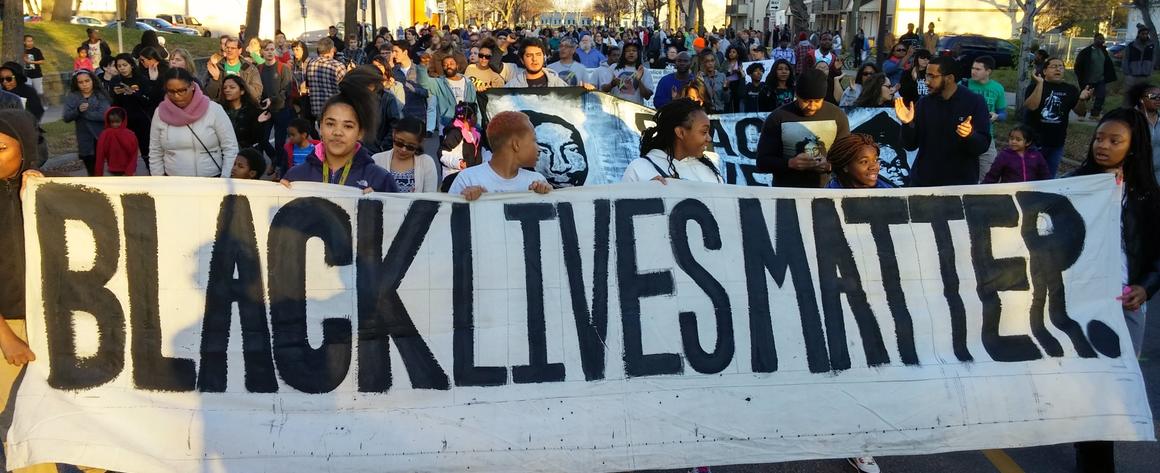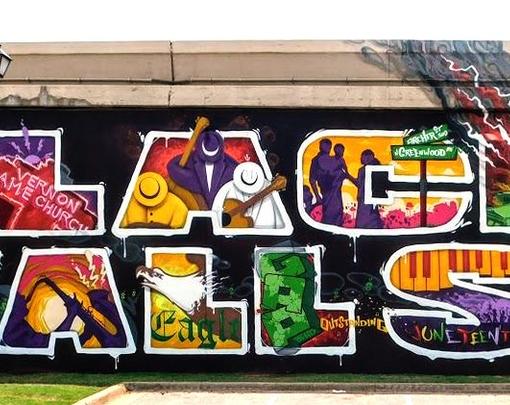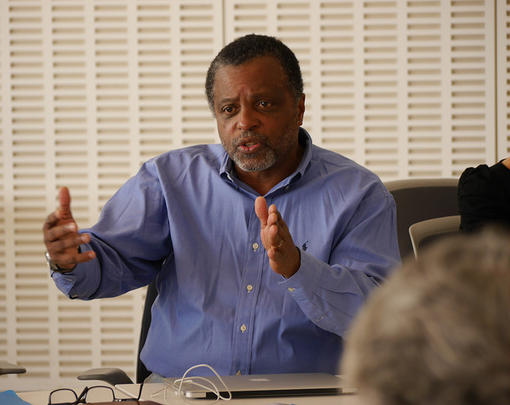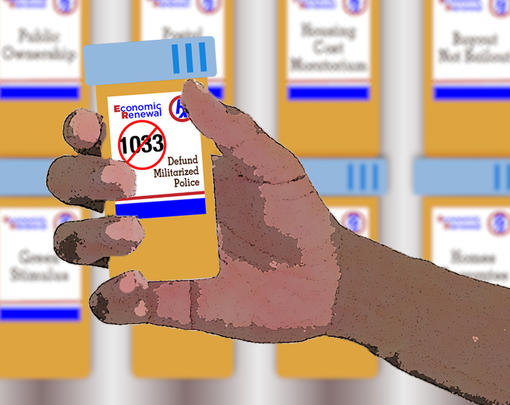In this powerful clip, PolicyLink’s Angela Glover Blackwell connects today’s unrelenting cases of police violence to systemic causes, underlining the urgency of systemic solutions. “You, as an individual in this society,” she concludes, “may not carry personal racism. But that does not keep the system from operating in a racist way.”
Transcript:
Today in this country we are having a conversation about police, police violence, the killing of black men and what all that means. It is sad that this is happening and that every day there’s a new incident to cause this to keep thinking about it and talking about it, but it is extraordinary that the American people are having to deal with these every day, weather you’re watching CNN or MSNBC, Fox or ABC news, all the news channels are talking about police violence and what does that mean against black people.
Many people probably look at that, certainly have looked at it in the past and they have said that this poor black men are doing bad things and that’s why they are ending up in confrontations with police without any understanding of their lives of these poor young black men.
Part of what it’s been going on for decades is that poor black people live in communities that suffer from hyper-surveillance of the police. Then police are more likely to be in their communities, the police are more likely to arrest them, the police are more likely to stop them even if they’re not doing anything and that is what is so hard to the American people to believe: that you get stopped and searched and arrested by the police in not doing anything, but this is starting to come out as people are telling the stories over and over again. But this has been the condition, this hyper-surveillance by police, making it more likely for people to get a record, to be known by the police, and then once they get in the system it is almost impossible to get out. Because of the whole system of being on parole and missing an appointment, or fraternizing with a person who has a criminal record getting you right back in the jail and then going back again and again and again.
This is coming to be seen by the American people in a way that it has never been seen before. But why are people in this communities in the first place? That’s getting peeled away. People are there because of housing discrimination, they are there because this is the only place where affordable housing can be found, they are there because that’s where their families live and people were drawn to be in the communities where they are comfortable, the combination keeps people in these low-income communities where they are an easy target for hyper-surveillance and then everything that comes from it.
And so, as we think about these issues we have to understand that while you as an individual in this society, as a white individual, you may not carry personal racism but that does not keep the system from operating in a racist way.





